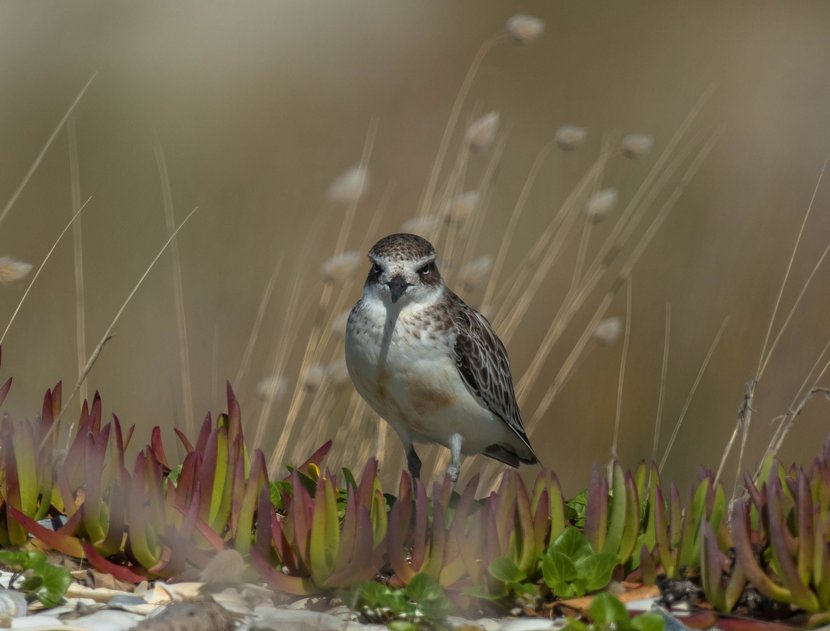The sand spit reserve at the northern end of Omaha beach is home to a variety of shore birds and is an important nesting area for the endangered New Zealand dotterels and variable oyster catchers. Other birds that roost there at high tide waiting to feed on the rich mud flats of the Whangateau harbour include banded dotterels, godwits, pied stilts,wrybills, turnstones, Caspian terns, white fronted terns and even the very rare fairy tern. These birds are vulnerable to disturbance by humans and dogs and predation by stoats, weasels, rats, hedgehogs and cats. The Omaha Shorebird Protection Trust has been formed to coordinate and finance the protection of this wonderful community asset. Volunteers are always needed to monitor the birds, inspect the predator traps and clear weeds from the nesting grounds. The trust works closely with the Department of Conservation, the Rodney District Council and The Auckland Regional Council. The Shorebirds Protection Trust are a great group of people doing a great job. More info can be found at www.omahashorebirds.co.nz
How you can help:
Predation and disturbance are the major causes of breeding failure for shorebirds. Eggs can overheat or chill if birds are kept off nests too long, and chicks may be lost if they are separated from their parents. During the breeding season (August–February), you can help by:
- Staying out of fenced areas to avoid trampling nests and causing disturbance
- Staying below the high-tide line when possible
- Moving out of the area quickly if you see birds pretending to be injured or trying to lead you away
- Keeping all dogs, cats, and vehicles out of shorebird breeding areas.
- Make sure your cats are inside at night times!
Trust members undertake a wide variety of activities, including checking traps, monitoring birds, advocacy, and fund-raising. If you would like to help the Trust with its work, would like further information, or would like to make a donation to help with these activities, please contact us at:
Volunteers for predator trap monitoring are given on site training and should be willing to commit to monitoring once a week or fortnight during the nesting season August to February.
Bird monitors need to be experienced and to have undertaken training. The NZ Dotterel Management Course is held at the Miranda Shorebird Centre annually in September.
People interested in shorebird protection can volunteer to act as Advocates for the Omaha Shorebirds by visiting the site at high tide and engaging with the general public. Many of those visiting the spit know very little about the shorebirds present, and may inadvertently cause harm by their activities. Usually those approached are happy to be given a brochure and offered the opportunity to learn more about these birds.

